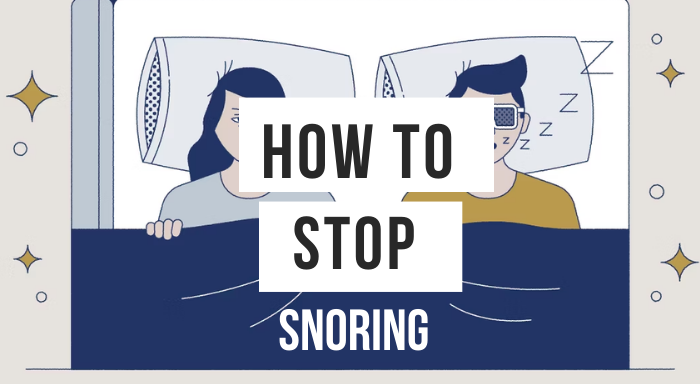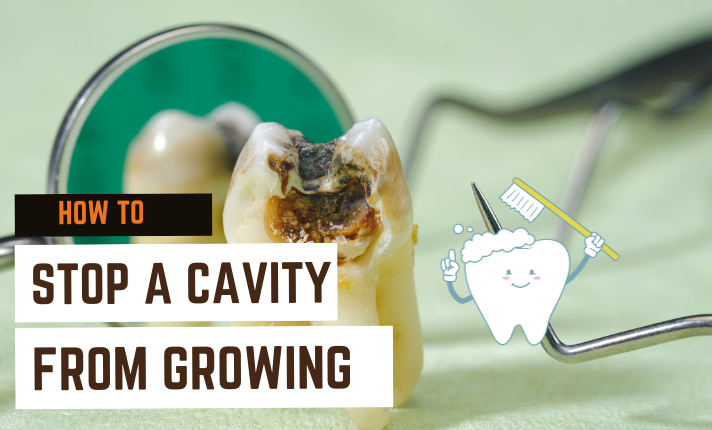How to Stop Snoring

Snoring can be a frustrating condition that affects the quality of your sleep and your partner’s peace of mind. If you snore constantly, and you don’t know how to stop snoring, it may be time to seek help from a medical professional. A doctor can evaluate your signs and symptoms, take your medical history, and perform a thorough examination to determine the severity of the problem. Additionally, if you notice your child snoring frequently, it is important to consult a doctor.
Imaging Tests
Once you visit a doctor for your snoring concerns, they may recommend further tests to better understand what’s causing the problem. These tests may include imaging tests such as X-rays, computerized tomography scans, or magnetic resonance imaging. By analyzing these images, the doctor can assess the structure of your airway and identify any potential problems contributing to your snoring. It is important to undergo these tests as they provide valuable insight into the underlying causes of your snoring.
The purpose of these imaging tests is to examine the nasal passages, throat, and other areas related to breathing. For example, an X-ray can help determine if there are any blockages or abnormalities in your sinuses or nasal cavities that could be causing snoring. A computerized tomography scan can provide a more detailed view of the airway, allowing the doctor to identify any problems with soft tissue or structures that may be obstructing airflow. Magnetic resonance imaging is particularly useful in evaluating the structure of the throat and detecting any potential abnormalities, such as a deviated septum.
Sleep Study
After performing a thorough examination and reviewing your medical history, your doctor may recommend a sleep study to further evaluate the severity of your snoring and its impact on your overall health. Sleep studies, called polysomnography, can provide valuable information about your breathing patterns and sleep stages.
There are two types of sleep studies: lab sleep studies and home sleep tests. Lab sleep studies are performed in a specialized sleep center, where you’ll spend a night while various sensors collect data about your sleep. These sensors monitor important aspects such as brain waves, blood oxygen levels, heart rate, breathing rate, eye movements and leg movements. The information collected helps the doctor analyze your breathing patterns throughout the night.
Home sleep tests, on the other hand, are more convenient and can be done from the comfort of your bed. Your doctor will provide a portable device that measures parameters similar to lab sleep studies, such as breathing patterns, heart rate, and oxygen levels. This allows for a comprehensive analysis of your sleep symptoms without spending the night at a sleep center.
Both sleep studies provide important information that helps your doctor determine the underlying cause of your snoring and assess its impact on your overall health. Based on the results, appropriate treatment options can be recommended to reduce your snoring problems and improve your sleep quality.
Treat your Snoring
When it comes to treating snoring, a variety of options can help you find relief and improve the quality of your sleep. It’s important to remember that what works for one person may not work for another, so finding the right treatment may require trial and error.
The first step in dealing with snoring is to consult your doctor. They can assess the severity of your snoring and determine if any underlying health problems, such as obstructive sleep apnea (OSA), need to be addressed. Your doctor may recommend lifestyle changes as a starting point. Losing weight, avoiding alcohol before bed, and managing nasal congestion can all play a role in reducing snoring.
If lifestyle changes aren’t enough, your doctor may prescribe oral appliances or mouthpieces. These devices help keep your airway open during sleep by repositioning your jaw, tongue, and soft palate. They can be customized by a dental professional to ensure the best fit and effectiveness.
Another option is continuous positive airway pressure (CPAP) therapy. The procedure involves wearing a mask over your nose or mouth that provides a constant flow of air to keep your airway open while you sleep. CPAP machines can effectively reduce snoring and treat OSA. Still, some people may find it uncomfortable or have trouble adjusting to the noise and feel of the machine.
For those who do not respond to other treatments or have physical problems that cause snoring, upper airway surgery may be an option. Various procedures and techniques are available, such as uvulopalatopharyngoplasty (UPPP) or maxillomandibular advancement (MMA), which involve removing or replacing tissues in the throat or jaw to improve the airway. These surgeries are usually performed by a surgeon under anesthesia.
Lifestyle and Home Remedies
Lifestyle and home remedies can also play an important role in reducing snoring. If you’re overweight, losing a few pounds can help reduce snoring. Extra weight can put pressure on your airway, making it more likely to collapse during sleep.
Sleeping on your side instead of your back can also make a difference. When you sleep on your back, the base of your tongue and soft palate are more likely to fall into the back of your throat, causing snoring. Place a tennis ball in a sock and attach it to the back of your pajamas to discourage sleeping on your back.
Elevating the head of your bed a few inches may also help. This can help keep your airways open and prevent snoring. You can achieve this by using a bed riser or placing a wedge pillow under your head.
Nasal strips or nasal dilators can be helpful for people with nasal congestion or deviated septum problems. These products work by opening up the nasal passages, allowing for better airflow and reducing the chances of snoring.
Avoiding alcohol and sedatives, especially before bed, can also reduce snoring. These substances relax the muscles and tissues of the throat, making them more prone to collapse during sleep. If you’re having trouble quitting smoking, it’s important to note that not only does quitting have numerous health benefits, it can also help reduce snoring.
Creating a healthy sleep environment is very important for both adults and children. Adults should get 7-9 hours of sleep per night, while children and teenagers need even more – between 9 and 12 hours. Consistency in sleep schedules can also help reduce snoring.
Alternative Medicine
Alternative medicine offers a variety of treatments for snoring. Some products, such as nasal sprays and throat sprays, claim to reduce snoring by lubricating or shrinking throat tissues. Additionally, alternative therapies such as acupuncture or chiropractic adjustments have been explored in clinical trials as potential treatments for snoring. While these options may work for some individuals, it is important to note that the effectiveness of alternative medicine in treating snoring varies and may not work for everyone.
Competition and Support
If you or your partner struggles with snoring, there are some steps you can take to cope and find support. One of the first things you can do is try lifestyle changes and home remedies. These can often make a noticeable difference in reducing snoring.
For example, if you’re overweight, losing a few pounds can help reduce snoring. Excess weight puts pressure on your airway, making it more likely to collapse during sleep. Therefore, losing weight can really have a positive effect.
Another simple tip is to change your sleeping position. Sleeping on your side instead of your back can make a big difference. When you sleep on your back, the base of your tongue and soft palate are more likely to fall into the back of your throat, causing snoring. You can also use nasal strips or dilators to open up your nasal passages and improve airflow.
Suppose lifestyle changes and home remedies don’t provide enough relief. In this case, it may be worth making an appointment with a health care professional. They can evaluate your specific situation and recommend appropriate treatments or interventions.
In the meantime, there are some coping strategies you can try to minimize the effects of snoring on your sleep. For example, wearing earplugs can help drown out the noise of snoring. Alternatively, you can use a white noise machine or fan to create background noise that masks the sound of snoring.
Preparing for your Appointment
Before your appointment with a health care professional, it is important to gather as much information as possible about your snoring and related symptoms or concerns. Start by making a list of specific questions or issues you want to discuss during the meeting.
It can be helpful to write down when your snoring started, how often it happens, and if any factors seem to make it worse or better. You should also note other sleep-related problems you may have, such as daytime fatigue or difficulty concentrating.
Try to gather any relevant medical history or previous test results that may be useful for the doctor’s evaluation. This may include information about past surgeries, allergies, medications, or chronic health conditions.
When scheduling your appointment, consider whether you should see a family doctor or a sleep disorder specialist. A family doctor or general practitioner can provide an initial diagnosis and treatment options. At the same time, a specialist is more skilled in diagnosing and managing snoring.
During the appointment, be prepared to discuss your symptoms and concerns in detail. The doctor will likely ask about your medical history, lifestyle factors, and any medications you are taking. They may also physically examine your throat, nose, and mouth.
What You Can Do to Stop Snoring
Note any symptoms related to your snoring, such as sleep disturbances or excessive daytime fatigue.
- Consider the possible reasons for your snoring, such as excess weight, sleeping position, or nasal congestion.
- Make an appointment with a healthcare professional to discuss your symptoms and concerns.
- Discuss your symptoms with your sleep partner, as they may have valuable insights or observations.
- Prepare a list of questions and concerns to bring to your appointment.
- Mention any medications, vitamins, or supplements you are currently taking, as they may contribute to your snoring.
- Ask the doctor about the most common signs of obstructive sleep apnea (OSA) and whether you must undergo further tests, such as a sleep test.
- Inquire about available treatments for snoring, including lifestyle changes, oral appliances, or surgical options.
- Ask about any potential side effects or risks associated with the recommended treatment options.
- Explore alternative steps to reduce snoring, such as weight loss, changing sleeping positions, or using nasal strips.
- Inquire about any underlying health conditions contributing to your snoring and ask for information on managing these conditions.
- Request brochures or other educational materials that provide additional information on snoring and its causes.
- Take note of any additional questions or concerns that arise during your appointment and make sure to address them with your doctor.
What to Expect from your Doctor to Stop Snoring
When you meet with your doctor to discuss your snoring, you can expect a thorough evaluation and discussion of your symptoms. Your doctor will likely ask you a number of questions to better understand your snoring and its effects on your health.
Don’t be surprised if your doctor asks about the frequency and intensity of your snoring. They may also ask about specific patterns, such as whether you snore every night or occasionally. It is important to give them an accurate picture of how often you snore and how loud it is.
Your doctor may also ask if there are any points at night when your snoring is particularly bothersome. For example, they may want to know if you snore more when you sleep in certain positions or if you snore worse when you sleep in the same bed as your partner.
Your doctor may ask about any pauses or irregular breathing during sleep. This is important because it can indicate obstructive sleep apnea (OSA), a condition closely related to snoring. If you’ve ever been told by a sleep partner that you’ve stopped breathing at night, be prepared to discuss it.
What you can do in the meantime to Stop Snoring
While waiting for your doctor’s appointment, there are things you can do to help reduce your snoring. These simple tips can make a difference in reducing and even stopping your snoring.
- First, try to avoid alcohol and sedatives before bed. These substances relax your throat muscles, making them more likely to collapse and snore. Instead, opt for a soothing cup of herbal tea or warm milk to help you relax.
- Another helpful tip is to try sleeping on your side instead of your back. When you sleep on your back, gravity can cause the tissues in your throat to block the airway, causing snoring. Sleeping on your side improves airflow and reduces or eliminates snoring.
- You can also use over-the-counter nasal strips to help open the nasal passages. These strips stick to the outside of your nose. They can help reduce nasal congestion, a common problem that can contribute to snoring.
- If you’re dealing with nasal congestion, consider using a nasal decongestant. These medications can help clear any blockage in your nose, which can make breathing easier during sleep.
- In the meantime, it’s important to remember that these suggestions may provide temporary relief but are not long-term solutions. It is still important to consult your doctor to address the underlying causes of your snoring and find an appropriate treatment plan.






